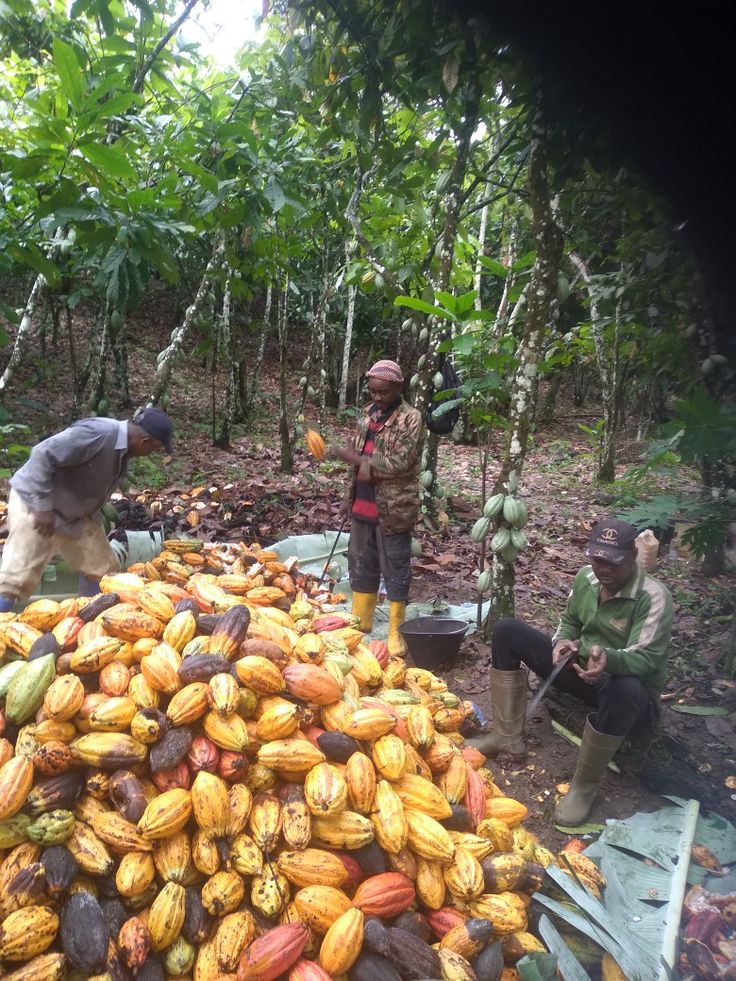The National President of the National Cashew Association of Nigeria (NCAN), Dr. Ojo Ajanaku, has raised alarm over the Bill before the National Assembly seeking to ban the export of raw agricultural commodities.

According to him, those sponsoring the Bill are out to cripple Nigeria’s cashew industry by forcing farmers to sell their produce cheaply to local processors instead of exporting at competitive international rates.
In an interview Ajanaku urged lawmakers to reject the proposal, warning that its passage would plunge cashew farmers into hardship and jeopardize an industry that employs millions of Nigerians.
Instead of restricting exports, he advised the Federal Government to introduce a Special Agro-Processing Loan (SAPL) with an interest rate of 3–5 percent to make financing accessible for local processors and attract investors into the sector.
‘Cashew industry sustains millions of Nigerians’
Speaking on the importance of the sector, Ajanaku explained that cashew farming and its value chain employ over five million Nigerians, mostly rural farmers. He stressed that agriculture should be treated as a business, not a political tool, and warned against policy inconsistencies that undermine President Bola Tinubu’s agricultural diversification and poverty alleviation agenda.

He further argued that agriculture provides more jobs than secondary processors and that government’s focus should be on supporting farmers with incentives, not restricting their market access.
‘Cost of financing is the real problem’
Ajanaku noted that Nigerian processors face high costs due to the seasonal nature of cashew. Since harvesting lasts only from February to May, processors must store produce for the rest of the year — an impossible task under bank interest rates as high as 34 percent.
By contrast, he said, countries like India grew their processing sector through low-interest loans and local machinery development. Nigeria, he argued, must follow that path rather than introduce punitive export bans.
Job creation potential
The NCAN President highlighted the untapped potential of cashew farming, saying that a processor cultivating 10,000 hectares could create over 30,000 jobs. He revealed that Nigeria currently has about 358,000 hectares of cashew plantations, which could expand further with proper government support.
Ajanaku concluded that banning raw cashew export would devastate farmers and contradict the Federal Government’s drive for agricultural growth and job creation.
The National Cashew Association of Nigeria (NCAN) has intensified its opposition to the proposed ban on raw cashew exports, warning that the move would cripple production, impoverish farmers, and hand control of the sector to foreign interests.

Scaling up production to 2 million metric tonnes
NCAN President, Dr. Ojo Ajanaku, said the association is aggressively expanding seedling propagation, having recently distributed 150,000 seedlings free of charge to farmers. The goal, he explained, is to boost production to 2 million metric tonnes within 10–15 years.

He noted, however, that Nigeria’s cashew trees are mostly 60 years old and beyond their prime, requiring urgent replacement. While government funds such as the CBN and Bank of Industry intervention schemes exist, Ajanaku stressed the need for consistent policies to encourage investors, particularly under agreements like the African Continental Free Trade Agreement (AfCFTA).
Farmers bearing the brunt of subsidy removals

According to Ajanaku, Nigerian farmers are already struggling under the removal of fuel subsidies and the planned 5% tax on petroleum products from January 2026. He asked why farmers, who often trek long distances to carry their produce from farms without access roads, should be denied the chance to sell cashew nuts for up to ₦2 million per tonne in the international market.

“Is the government shifting subsidy to the farmers? Are farmers now expected to subsidize processors? Government exists to protect citizens and their welfare, not impoverish them,” he said.
Reliable data, affordable financing needed
To enhance planning, NCAN has launched a farmers’ data app and is advocating for a Special Agro-Processing Loan (SAPL) at interest rates below 5%. This, he said, would allow processors to compete globally and encourage farmers to expand production.
‘Foreigners behind the ban push’
Ajanaku alleged that foreigners, hiding behind a few Nigerians, are behind the push for an export ban. According to him, these players have not processed cashew locally in the past three years but instead blocked Nigerian processors from gaining access to international markets.
“No country industrialized by punishing its farmers,” he argued. “American farmers are among the richest in the world. Why should Nigerian farmers be forced into poverty?”

Faulty process, hidden agenda
The NCAN President condemned the Raw Materials Research and Development Council (RMRDC) Bill, which has already passed the Senate and is before the House of Representatives. He said there was no public hearing and that stakeholders like NCAN were deliberately sidelined.
He also criticized the involvement of foreign consultants in drafting Nigeria’s so-called Cashew Roadmap, promoted by GIZ, which includes clauses promoting GMO seeds and foreign-funded transition committees.
“If foreigners fund the transition committee, who will dictate the tone? Clearly, they are trying to take the industry away from Nigerians,” he warned.
Call to action
Ajanaku urged both chambers of the National Assembly to drop the Bill banning raw materials export, redirect the RMRDC to its statutory role, and allow Nigerian stakeholders to lead the review of policies affecting cashew production and processing.
“We are not against value addition,” he emphasized. “We are championing processing — but it must be done sustainably, without destroying farmers’ livelihoods.”




